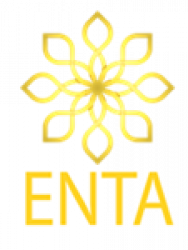- Mission
ENTA promotes the quality of learning and teaching Arabic in Europe by serving as a platform for communication and collaboration in research on and teaching of Arabic language, linguistics, and culture.
- Vision
We progress individually by embracing the collective diversity.
- Objectives
In fulfilment of its aims, ENTA will:
- Provide a venue for regular exchange of ideas among its members.
- promote open and freely available quality teaching resources.
- broaden the scope of research in Arabic by encouraging pan-European collaboration.
- Membership
- ENTA is an informal network of scholars and practitioners.
- Membership in the network open to:
- teaching and research staff working on Arabic language, linguistics, and culture in European institutions.
- individuals from outside of Europe interested in the promotion of Arabic language teaching and research in Europe.
- Administration
- ENTA is not a Juridical person. All cost or income of network activities shall be passed on to the relevant School/unit of which individual members are affiliates.
Affairs of ENTA are managed by a steering committee.
- Director: In the first instance, this will be the founder; thereafter the Director will be approved by the members. The Director shall normally hold office for three years and shall be eligible for immediate re-appointment. The Director shall be responsible for taking a role of leadership in line with the stated mission and objectives of the network.
- Two Deputy-Directors, who shall be appointed in the first instance by the Director. The Deputy-Directors shall normally hold office for three years and shall be eligible for immediate re-appointment. The Deputy-Directors shall be responsible for supporting the Director in line with the stated aims and objectives of the initiative to develop ENTA.
- Steering Committee comprising the Director and the Deputy Directors, and including, where required, co-opted members. The Executive Committee shall meet regularly and at least once a year. It is responsible for managing the network’s general and academic[1] activities and administration.
[1] As the network is an informal, not a legal, entity, it does not conduct financial transaction.

